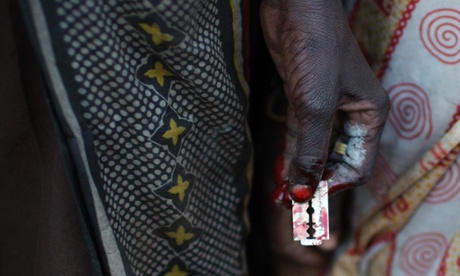
I am the second generation of a family whose mother chose to shun female genital mutilation (FGM). As a nine-year old, and then again as an 18-year-old, she refused to undergo the tradition, a mandated rite of passage for girls from the Marakwet of Kenya. The Marakwet have long practised FGM to mark transition from girlhood to adulthood.
Known as kapkoro, the ceremony involves cutting the clitoris, labia minora and labia majora. After undergoing the cut, nine- to 13-year-old girls remain in seclusion for a period during which older women teach them the traditions and secrets of the community. Thereafter, girls as young as 14 consider themselves adult women ready to get married and start a family. FGM has ushered them into a new social role.
Our family’s abandonment came long before the global and national campaigns against FGM took root. The abandonment didn’t even begin with the missionary-driven campaigns against the practice that punctuated the colonial period in Kenya.
Instead, it began when my mother dreamed of owning a car to ease her household chores. She lived on top of the hills framing the Kerio valley and had to endure day-long journeys up and down the valley collecting salt licks for her family’s cows. What’s more, she grew up as the only girl in a family of six boys, and was required to shoulder the responsibilities of sisters who were never born.
“My teacher told us that there are Luo ladies who drive cars and put men in jail,” my mother said of the dream that began to take shape. “He told us that Luo women were not circumcised.”
Concluding that not being cut would grant her access to education and bring her closer to owning a car, she decided that she would not undergo FGM, even though she would be forever seen as a child in the community. It didn’t faze her. Education was more important.
So, when she was nine, my mother cried when she was to undergo FGM. Culturally, it’s a bad omen if someone cries before undergoing the cut, so she was left alone.
My mother left home to live with her eldest brother in Kakamega, a town in western Kenya, where she was forced to trade her studies for household chores and the care of her nephews and nieces.
When she was 18, her family insisted that she ought to undergo the practice. As one of the oldest girls who remained uncut, she was preventing the younger girls in her clan from transitioning to women. What may have seemed a heroic stance against circumcision was fast becoming an embarrassment for her family.
In a last resort to stop their insistence, my mother embarked on a 500km journey from Nairobi to the coastal city of Mombasa, threatening her family that they would never see her again if they forced her to be cut. Afraid for her life, they relented and allowed her back home – the first uncut woman among her contemporaries.
As I grew up, I gradually came to understand the significance of my mother’s actions. She rejected circumcision in the 1970s, at a time when no one in her community had contemplated such an idea. She did not hesitate in sacrificing her own social identity and acceptance to hold on to her educational dreams.
I grew up grateful for the wealth of possibilities her painful history opened up for me. I grew up eager to accord better opportunities to my own contemporaries – fellow girls whose mothers continue to subject them to the practice. Unfortunately, the rate of female circumcision among the Marakwet remains high. In many parts of the area, FGM is still considered a prerequisite for marriage and, for many girls, it also means an end to their schooling. Deeming themselves women, the girls abhor mingling with “children” in a classroom.
Unlike many of these girls, I have been lucky to remain in the classroom. My mother broke away from tradition, giving me the freedom to define my femininity and cultural identity without the pressures of rooting them within a physical ceremony.
I have attended school through to university without having to worry that kapkoro might cut short my dreams. My mother has given me the licence to dream. She has imbued me with the confidence of encouraging other girls to dream alternative futures that do not rely on FGM as a prerequisite.
• Miriam Jerotich is a writer and researcher from Kenya working at the Africa Coordinating Center for the Abandonment of FGM/C based at the University of Nairobi

